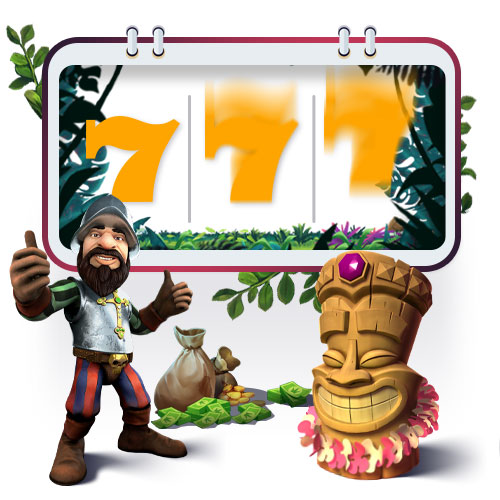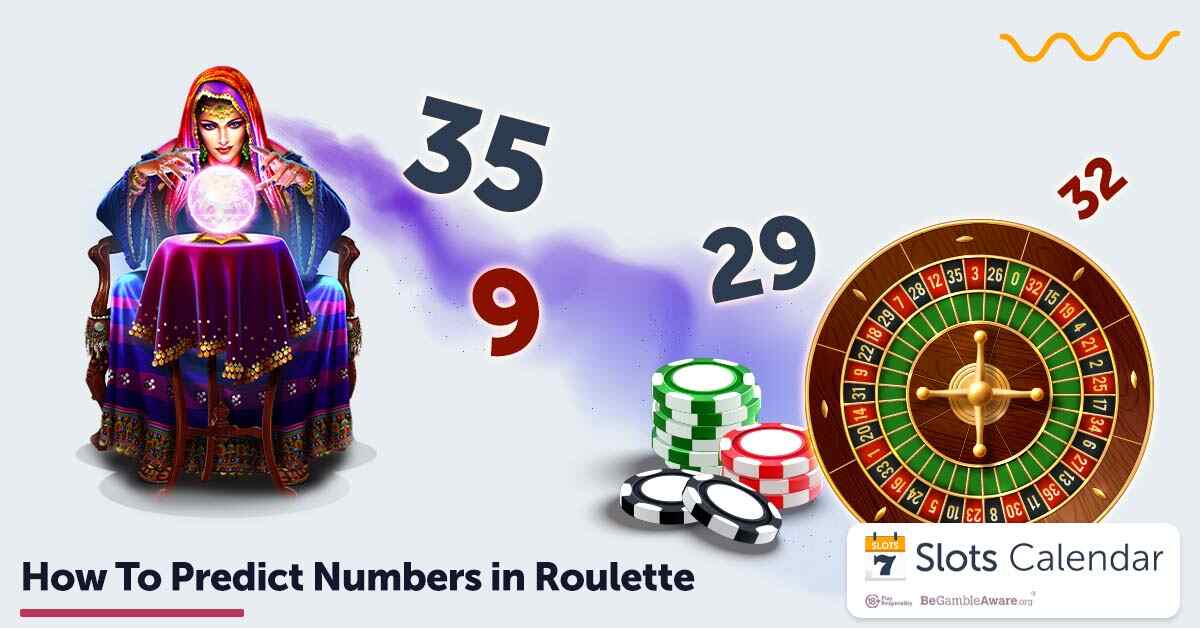In this article, we’ll talk about the intriguing topic of roulette number prediction. We’ll explore the strategies and theories that players use to gain advantage and use the game’s hidden secrets. With our guide, you’ll better understand the basics of roulette and everything about probability, different techniques, and methods gamblers use to increase their chances of winning. So, get ready for this adventure and join us in the exploration of roulette number prediction.
Back to Roulette Basics
Roulette is a timeless casino game of luck that still captivates gamblers all around the world. Given its irresistible mix of unpredictability and the exciting promise of winning big time.
The spinning wheel, the bouncing ball, and the anticipation as it settles into a numbered pocket create an exhilarating experience for players.
While the game is primarily based on luck, many gamblers have been tantalised by the idea of predicting online roulette numbers and gaining an edge against the house.
However, we must be careful because trying to predict numbers in roulette is not something easy.
First things first, we’ve got to look at the basics and really understand how these strategies work.
The Roulette Wheel and Its Components
Think of the roulette wheel as the centrepiece of the game. This captivates the player’s attention as it determines the outcome of every spin.
It consists of a circular, rotating disc with numbered pockets, each uniquely coloured in red or black.
Adjacent to the wheel is the roulette table, which complements the wheel’s setup. Players place their bets on the table, selecting specific numbers, groups of numbers, colours, or other betting options, corresponding to the pockets on the wheel.
Different Types of Roulette Games
Of all roulette variants, European roulette and American roulette are the most played.
European Roulette:
- European roulette features 36 red and black numbered pockets and a single green ‘0’ pocket.
- This one has a lower house edge when compared to American roulette, making it more favourable.
- The presence of only one zero pocket reduces the likelihood of the ball landing in the house’s favour, thus improving the odds for players.
American Roulette:
- American roulette follows the same basic principles as European roulette, but it has an additional green ’00’ pocket, increasing the total number of pockets to 38.
- Including the ’00’ pocket significantly impacts the game’s odds, resulting in a higher house edge than European roulette.
- The higher house edge decreases the player’s probability of winning on each spin, making American roulette a more challenging game for prediction strategies.
Role of the House Edge & Why Predicting Numbers is Challenging
The house edge is fundamental in all casino games, including roulette. It represents the statistical advantage held by the casino over the players, ensuring the casino generates profits over the long run.
In roulette, one or two green pockets (0 or 0 and 00) give the casino its edge.
Predicting roulette numbers is challenging primarily due to the game’s random nature.
Each spin is an independent event unaffected by previous outcomes, leading to unpredictable results.
While various strategies attempt to enhance prediction accuracy, it is essential to understand that no method can completely eliminate the house edge or guarantee consistent wins.
Gambler’s Fallacy & Law of Independent Trials
The Gambler’s Fallacy, a cognitive bias that plagues many casino players, is the mistaken belief that past outcomes influence future events in games of chance.
In the context of roulette, it leads gamblers to believe that if a particular outcome (e.g., a specific number or colour) has not occurred for a while, it becomes “due” and is more likely to happen in the next spin.
This fallacy can be dangerously misleading, disregarding the fundamental nature of independent events in roulette.
In reality, each spin in roulette is an independent event, and the outcome is entirely unaffected by previous spins.
Whether the ball has landed on red five times in a row or not for a hundred spins, the probability of it landing on red in the subsequent spin remains the same – approximately 18/37 in European roulette or 18/38 in American roulette.
Concept of Independent Trials
If you really want to understand how to predict roulette numbers, you have to master the idea of independent trials.
Each spin of the roulette wheel is entirely separate from the previous and subsequent spins without impacting the outcome of future spins.
The wheel and ball do not have memory or intention, and each spin is a fresh opportunity for any number to come up.
Impact of Previous Spins on Future Outcomes
As mentioned earlier, the outcome of each spin in roulette is entirely independent of previous spins.
Despite the temptation to believe in “hot” or “cold” numbers based on recent results, statistical probabilities remain constant for every spin.
The concept of hot numbers (numbers that have appeared frequently) or cold numbers (numbers that have not appeared for a while) is purely psychological and lacks a factual basis.
The Role of Probability in Roulette
If you’re trying to learn how to predict numbers in roulette, then you should understand how probability works.
As a short definition, probability means a way of using math to understand how likely something is about to happen. In roulette, players can gauge their chances of winning and make informed betting decisions.
In roulette, probability is central to the game’s mechanics. Each number on the wheel has a certain chance of being the outcome of a spin – 1/37 for European roulette and 1/38 for the American version.
Understanding these probabilities helps you understand the inherent advantage the casino has represented by the house edge.
To calculate the probability of a specific number prediction, divide the number of favourable outcomes (the single pocket corresponding to the chosen number) by the total number of possible outcomes (the total pockets on the wheel).
While the odds of hitting a specific number are low, the potential payout for a successful bet on an individual number is relatively high, adding to the thrill of the game.
The relationship between risk and potential reward is closely tied to probability in roulette.
Bets with higher chances of winning, such as betting on red or black, offer lower payouts but are safer options.
On the other hand, bets on specific numbers or smaller groups of numbers have lower probabilities but come with higher payouts.
Common Prediction Strategies: How to Predict Roulette Numbers?
From observing the dealer’s throw to detecting biased wheels and employing sector slicing, we will delve into the mechanics and applications of each strategy.
It is essential to note that while these strategies can offer some advantages, roulette prediction remains unpredictable, and no method can guarantee consistent winnings.
Visual Ballistics
Visual Ballistics is a method experienced roulette players use to gain an edge over the game. Instead of relying on chance alone, visual ballistics involves observing and predicting where the ball will land based on the dealer’s throw. Here’s how it works:
While carefully observing the dealer’s movements, the player tries to identify specific patterns in how the dealer releases the ball and spins the roulette wheel.
Skilled players who employ visual ballistics look for specific cues, such as the speed and angle at which the dealer releases the ball and the rotation speed of the roulette wheel.
Dealer Signature
Dealer Signature is another popular strategy that involves observing the dealer’s behaviour to predict the outcome of the roulette spin.
Dealer signature is based on the belief that dealers subconsciously develop unique patterns in their spins over time.
These patterns may lead to a bias in certain roulette wheel sections, resulting in a higher likelihood of the ball landing in specific areas.
Players using dealer signatures carefully watch the dealer’s movements, such as how they release the ball, the speed of the spin, and any potential patterns in the number sequences they call out during the game.
Factors such as changes in dealers or wheels, casino policies, and small deviations in the dealer’s movements can greatly impact the effectiveness of this strategy.
Biased Wheels
Biased wheels are physical imperfections or irregularities in a roulette wheel that cause certain numbers or sectors to win more frequently than others.
Biased wheels can occur due to manufacturing defects or wear and tear over time. When the roulette wheel is not perfect, it can lead to malfunctions.
This means that it can end up favouring certain pockets more than others. Practically, some numbers or sections can have a better chance of winning.
Detecting biased wheels requires careful data collection and analysis. Players need to record the outcomes of numerous spins to identify any significant deviations from the expected distribution of winning numbers.
Online casinos and modern wheels in reputable land-based casinos are regularly maintained to minimise biases.
While exploiting biased wheels may not be explicitly illegal, many casinos consider it cheating, and players caught using this strategy can be banned from the premises.
Sector Slicing
Sector slicing is a prediction strategy that involves dividing the roulette wheel into sectors and betting on specific groupings of numbers. Here’s how it works:
The roulette wheel is divided into sections in sector slicing, usually based on the wheel’s layout.
Players then place their bets on the numbers within specific sectors rather than betting on individual numbers or broad outside bets.
Players need to keep track of past outcomes and look for patterns to identify hot (frequent wins) and cold (rare wins) sectors.
This strategy requires consistent record-keeping and analysis to spot any trends that may suggest a bias towards certain sectors.
Advantages and Disadvantages of Roulette Number Prediction
While some strategies are rooted in mathematics or visual estimation, others involve advanced technology.
Both techniques have their own good points, but they also have their limitations. It’s almost vital to understand the little details before using them at a real casino.
Now, let’s delve into the different methods and evaluate their efficacy:
- Mathematics: Using mathematical methods for predicting numbers in roulette does not offer any significant advantage, and it was allegedly disproved by Einstein.
- Visual roulette number prediction: Visual roulette number prediction can be effective if you possess quick mental calculation skills. However, most individuals struggle to estimate roulette ballistics accurately.
- Number prediction software: Employing number prediction software can provide a slight edge over the casino. Nevertheless, this advantage is generally insufficient to make a significant difference.
- Roulette prediction devices: Among all the roulette prediction methods, using prediction devices is the only one that can be verified. However, casinos actively ban and penalise players who employ such devices.
- Biased wheels: This method might have worked on older land-based casino wheels. However, modern wheels have been designed to eliminate biases, rendering this approach largely ineffective.
- Dealer’s signature: The advantage of the dealer’s signature method lies in its relative ease of identification compared to a biased wheel. However, live dealers are trained to avoid forming predictable patterns, limiting the reliability of this approach.
Conclusion
In conclusion, no matter the strategy you employ on roulette sites, it is vital to recognise that roulette fundamentally remains a game of chance.
While certain tactics may offer short-term advantages, the long-term outcome remains unpredictable and subject to luck.
Remember, when you play casino games, it’s crucial to be responsible. At its core, roulette is still a game of chance, and there’s no guarantee you can always beat the odds.
Responsible gambling involves setting limits, being aware of our emotions, and playing for entertainment rather than relying on the pursuit of constant winnings.
While embracing this mindset, we can derive pleasure from roulette while maintaining control over our actions and finances.

 Free Slots
Free Slots











